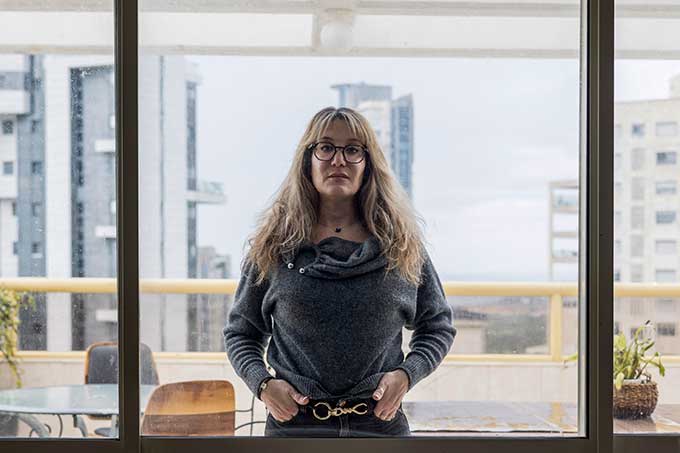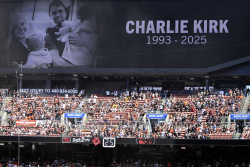The grenade rolled toward his boys. Gil Ta’asa had seconds to choose.
Newly released footage from the village of Netiv Ha’asara shows what happened at 6:29 a.m. on October 7, 2023. The 46-year-old Israeli firefighter rushed his two sons, still in their underwear, to their bomb shelter as Hamas terrorists pursued them. Ta’asa fired at the attackers until his ammunition ran out. Then came the grenade. This man who spent his career running toward danger made his final rescue: he threw himself on the explosive to shield his sons Koren (12) and Shai (8).
He died. The boys survived, though Shai lost sight in one eye.
Ta’asa’s eldest son, Or (17), was murdered by Hamas at Zikim Beach that same morning. A fourth son survived with his mother Sabine next door. Twenty-one residents of this community of 900 were massacred.
The depravity didn’t end with murder. One militant was caught on camera casually drinking Coca-Cola from the family’s refrigerator while the bloodied boys stood nearby. Koren used Google Translate to plead: “Kill me, not my mother, and please leave my brother alone.”
Israel announced that it had killed that terrorist in September 2024.
Amid such barbarity, Gil Ta’asa’s final act revealed something transcendent: a father’s sacrificial love. His death compels us to consider what masculinity and fatherhood mean in our fractured age. In an era of confusion about “toxic masculinity,” Gil Ta’asa showed us what sacred masculinity looks like.
Jewish thought recognizes that parental love transcends instinct—it is covenantal. Isaiah captures this: “Can a woman forget her baby . . . Though she might forget, I never could forget you.” The parent-child bond mirrors divine love: not transactional but enduring.
Ta’asa fulfilled that covenant radically. David once cried, “If only I had died instead of you, O Absalom, my son, my son!” Ta’asa did die instead of his children. His act was a Kiddush Hashem, sanctification through ultimate sacrifice.
Contemporary culture caricatures masculinity as either ugly aggression or hollow posturing. We’re awash in shallow displays of strength, while young men drift in confusion. Jewish tradition offers a different measure: gevurah, strength defined as self-mastery and moral courage. As the Jewish sage Ben Zoma said, “Who is mighty? He who subdues his inclination.”
Ta’asa’s final act was gevurah without spectacle. He was a senior Ashkelon firefighter, and his final rescue was the ultimate expression of his calling. That is masculinity at its best: not conquest, but covenant.
Our society faces a crisis of fatherhood. Nearly 25 percent of American children grow up without fathers. Today, young men account for only “42% of [college] students ages 18 to 24 at four-year schools, down from 47% in 2011.” And since 2010, suicide rates have risen by 30 percent for younger (25–34) men. We see a cascade of loneliness, nihilism, and anger among many men spilling into our streets.
We debate toxic masculinity while young men remain rudderless. We frame the crisis of men economically but ignore moral formation. Ta’asa’s example cuts through our confusion: men need calling and purpose, not just careers.
Research shows that children with committed, married fathers have better educational outcomes, lower crime rates, and improved mental health. Yet our institutions—from schools that show hostility to boyish behavior to family courts that award mothers custody over 80 percent of the time—undermine fatherhood. Popular culture relentlessly mocks traditional masculinity while offering no alternative vision beyond consumption and self-gratification.
Fatherhood is not ornamental but central to human flourishing. To be a father is to take responsibility, put others first, and anchor children in belonging. Men need calling back to their role as protectors—not in domination but devotion. Strength without love is brutality. Love without strength is sentimentality. True fatherhood embodies both virtues.
Rabbi Jonathan Sacks noted that fatherhood must be reinforced by communal moral codes. Without them, families fragment and the vulnerable suffer most. Civic health rests on love within the home.
Sabine Ta’asa, in sharing her family’s story, said: “When you have an enemy next to you, you cannot sleep soundly at night.” Yet she demonstrates that even in the face of evil, dignity remains possible. She witnesses not just horror but the love that confronted it—a father who, when evil came, responded with ultimate protection.

Ta’asa’s loss is tragic but contains a greater truth. He didn’t choose his circumstances; he chose his response. October 7 exposed evil at its most brazen. But it also revealed, in one father’s final act, humanity at its best. In a world that has forgotten what heroes look like, Gil Ta’asa—firefighter, father, protector—showed us. His was a love carved in fire, and it will burn eternal.
May we prove worthy of his example.
Top Photo: The remains of a home in Netiv Ha’asara after the October 7 Hamas attacks (Alexi J. Rosenfeld/Getty Image)
City Journal is a publication of the Manhattan Institute for Policy Research (MI), a leading free-market think tank. Are you interested in supporting the magazine? As a 501(c)(3) nonprofit, donations in support of MI and City Journal are fully tax-deductible as provided by law (EIN #13-2912529).

















